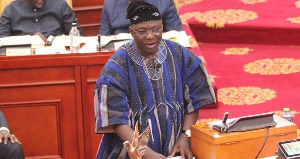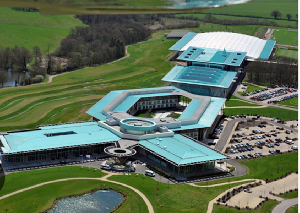Accra, Jan. 12, GNA - The Private Sector, Civil Society and the Media have been urged to collaborate in devising national e-strategies and creating equitable Information Society for the nation's overall development.
Mr Michael A. Gizo, The Chairman and Conference Director of the African Regional Conference for the World Summit on the Information Society, said this at a soiree organised for Media Practitioners in Accra on Tuesday.
He said all stakeholders had important roles to play in the Information Society through collaboration and partnership since technological and other changes were rapidly transforming the environment.
The soiree was organised to sensitise Media Practitioners on the Action Plan of three meeting of the African Regional Conference for the World Summit on Information Society (WSIS) scheduled to take place in Accra from February 2 to 4 2005.
The theme of the African Regional Preparatory Conference for the WSIS is: "Access - Africa's Key to an inclusive Information Society." It is to prepare Africa for an effective participation in the second phase of the WSIS to ensure a strategic and inter-dependent digital partnership that would promote growth and human development on the Continent.
The conference would bring together all stakeholders, ranging from Government to Civil Society, Private Sector, Academia, Parliamentarians, Local Authorities, African Regional Institutions, Development Partners and International Organisations.
The three-day conference would be opened by President Mr John Agyekum Kufuor and addressed by Dr K. Y. Amoako, the Executive Secretary of the UN Economic Commission.
Mr Gizo said the WSIS process was a series of open-ended inter-governmental reparation that defines the agenda of the Summit and this was complemented by thematic global conferences and regional preparatory conferences.
The first phase of the WSIS was held in Geneva in December 2003 and it adopted a Declaration of Principles and a Global Plan of Action, setting the stage for international cooperation to close the existing digital divide between developing and developed countries while involving all stakeholders in building an inclusive information society. The second phase of WSIS to be held in Tunis, Tunisia from November 16 to1 8 2005 would focus on the follow-up and implementation of the Geneva Declaration of Principles and Plan of Action by stakeholders at national, regional and international levels.
The outcome of the hosting of Africa's Regional Preparatory Conference by Ghana is, therefore, to feed into the Global Preparatory Committee to produce draft documents to be adopted at the Tunis Summit. In the preparation for the Regional Conference, Thematic Workshops have been planned as pre-conference activities and one of which is the Forum on Media in Africa Information Society that would be part of the breakout session on January 30 to 31 2005.
The UN Economic Commission for Africa, as coordinator for the Accra Conference, is to support a day's Sensitisation Workshop for members of the Media in Ghana.
Its objectives include familiarising participants with terms such as ICT4D, Information Society and how to combine its goals; define what is meant by an African Information Society Initiative (AISI) framework for national and Sub-Regional E-Strategy development and implementation. The other objectives are to outline threats and challenges facing ICTs; discuss and highlight the importance of policies and functions of NICIs and to develop a Media policy and strategy in the Information Society.
The Planning Committee said in addition to being an essential means of information dissemination, mass media played a critical role in spreading awareness in Africa of the importance and benefits of the information revolution since newspapers, radio and television provided an easy, accessible and cheap means of carrying information to the end user.
It said communities, therefore, did not have to wait for the Internet to receive much of the information it carries since the mass media could access many of the existing sources of information and provide broad channels of communication to the poor in remote areas. The overall goal of the Forum is therefore to build a critical mass of Journalists who could specialise on Information Society issues whilst promoting awareness in society based on the AISI media-training module.
Click to view details



Regional News of Wednesday, 12 January 2005
Source: GNA
Private Sector and Civil Society must assist to devise strategies - Gizo
Entertainment















